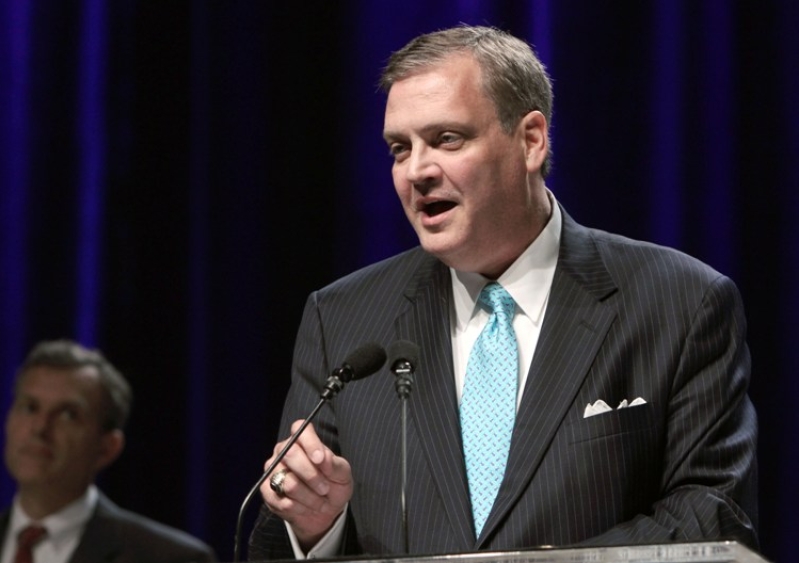
Dr. Albert Mohler, president of Southern Baptist Theological Seminary in Louisville, Ky, has said Tony Campolo's decision to support same-sex relationships is not only "dangerous", but also abandons Biblical truths.
In podcast which aired June 9, Mohler said that Campolo had been on a "trajectory" towards accepting same-sex relationship for many years, as he had previously disputed the inerrancy of scripture, the exclusivity of the gospel and other key issues. However, unlike his previous views, Campolo's latest statement lacks "any serious engagement" with the Bible.
Mohler cited articles from 1999 where Campolo said he believes Paul's writing in the first chapter of Romans clearly condemns same-sex relationships.
"I believe that the Bible does not allow for same-gender sexual intercourse or marriage," Campolo said in Sojourners Magazine in May 1999.
In contrast, Mohler said, Campolo's explanation of his shifting worldview "has no serious engagement with Scripture at all."
"To put the matter bluntly, Tony Campolo was right then and he's wrong now," Mohler said. "But he speaks very differently about Scripture now. He doesn't say that he believes Scripture to be very clear in authorizing same-sex marriage. Rather, whereas in 1999 he said that Romans 1 very clearly says that all homosexual sexual acts are sin, and that same-sex marriage would not then be legitimate in the eyes of the church, in the year 2015 he says that the Scripture can be interpreted in different ways."
Earlier this week, 80-year-old Campolo released a statement announcing his support for same-sex couples' inclusion in the church. He said: "It has taken countless hours of prayer, study, conversation and emotional turmoil to bring me to the place where I am finally ready to call for the full acceptance of Christian gay couples into the Church."
Campolo, who also served as President Clinton's spiritual advisor in the 1990's, said "people of good will can and do read the Scriptures very differently when it comes to controversial issues" and acknowledged that he could be wrong about this one. He said he is old enough to remember, however, when the church made strong biblical arguments for keeping women out of teaching roles in the church and excluded people because they were divorced.
"Not long before that, some Christians even made biblical cases supporting slavery," Campolo said. "Many of those people were sincere believers, but most of us now agree that they were wrong. I am afraid we are making the same kind of mistake again, which is why I am speaking out."
Mohler said he does not doubt that Campolo believes his new statement on homosexuality is an act of compassion, but warned that his views are "dangerous."
"This is where biblical Christians who are committed to the inerrancy of Scripture and are committed to that steadfast moral tradition based upon that Scripture must understand that compassion will never actually take the form of denying anything that Scripture clearly says," Mohler said.
"It will never take the form of in any way subverting what Scripture reveals, and in this case we have to be very clear - as in every case - that even though something may be claimed to be compassion, if it confuses the gospel and if it confuses sin; if it confuses the Bible, then it isn't really compassion."
"I grieve yesterday's statement by Tony Campolo most because I believe it comes at the direct cost of the gospel of Jesus Christ," Mohler said. "I also fear this statement will be most dangerous to those to which he has sought to be most compassionate."
In an earlier statement, Mohler urged Christian leaders to be prepared to take a firm stand on the issue, but warned that doing so will inevitably damage relationships.
"This issue will eventually break relationships: personally, congregationally and institutionally," he said, the Washington Post reported. "There's not going to be any way around it."






